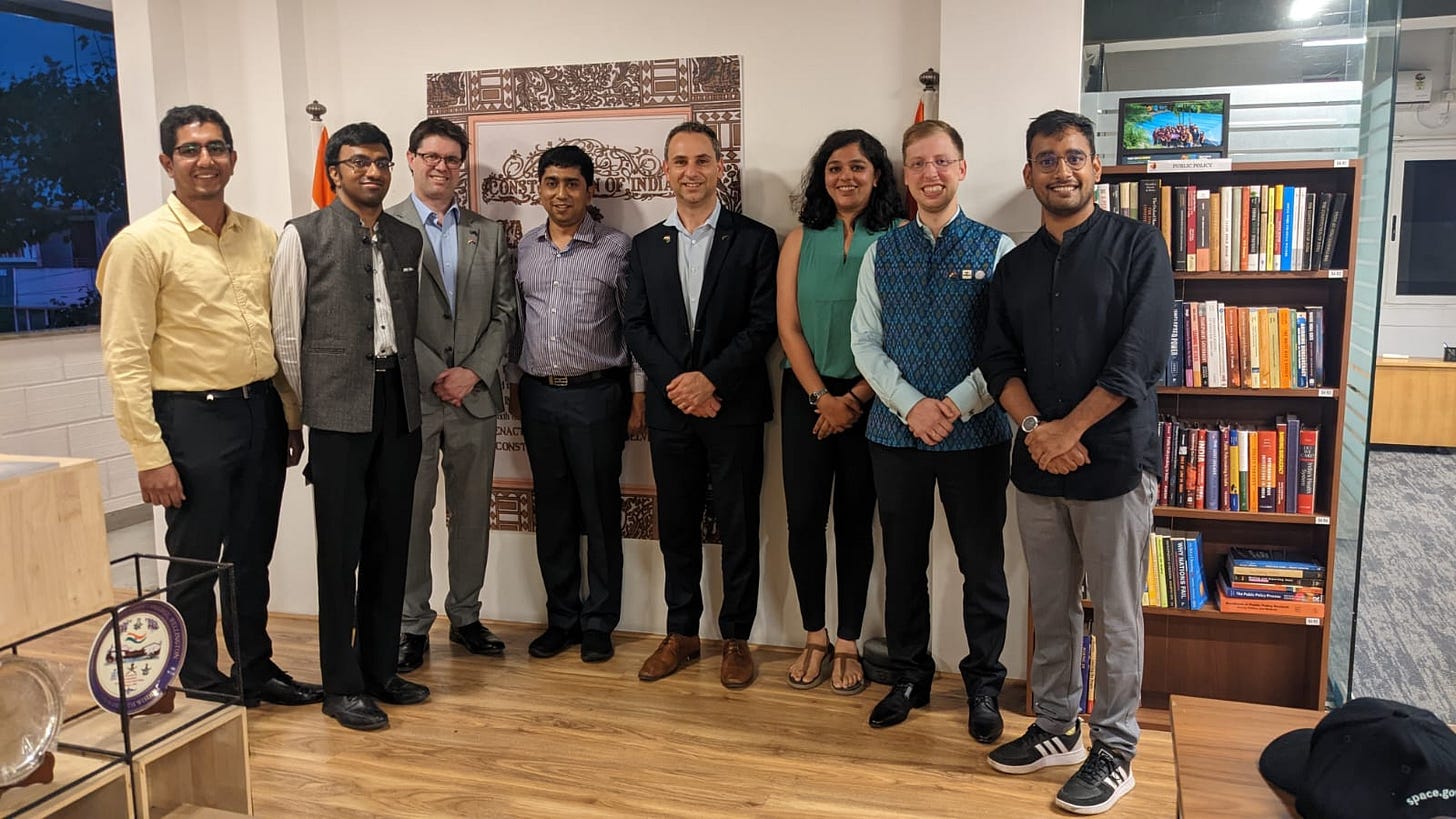Public Access to Knowledge Resources
Dear Readers,
Hope you are doing well. In this edition of the newsletter, we bring to you our latest from the past week on improving public access to research knowledge, why India needs one more aircraft carrier, Australia’s space ambitions, and we top it all off with some well-meaning old-fashioned advice for all our young readers who are recent graduates.
Public Access to Knowledge Resources
The open access movement received a huge boost last week when the United States announced that all tax-payer funded research carried out through federal research agencies must be made publicly available. In Takshashila Issue Brief - Public Access to Knowledge Resources, we compile our past work on public access to publicly-funded research and argue that India must create an open research database and a set of open journals:
National Public Research Database as a public repository of all research output from central and state government funded research. This includes research output obtained using infrastructure built or supported by public institutions.
A family of Open Journals of India as a credible platform for publishing research across disciplines, instead of opting for foreign publishers.
Open Access Mandate for Academia
In an article for Hindustan Times, Shambhavi Naik and Mihir Mahajan, discuss the current open access policy for Indian academics, its shortcomings and the way forward:
The current policy creates institutional repositories and archives for publishing articles before peer review. While this provides a valuable option, it omits peer review, which provides a layer of credibility and is an aid for non-experts to trust the published results. Further, such repositories cannot substitute for the reputational benefits of publishing in recognised journals and their search or discovery value. India would do better to invest in improving domestically run scientific journals, while cracking down on predatory and dubious publications.
India Needs More Carriers and Submarines
On September 2, 2022, India unveiled its indigenously built aircraft carrier INS Vikrant. In his weekly column for The Print, Lt. Gen. Prakash Menon writes that India needs another aircraft carrier and more submarines to boost its naval capabilities and protect maritime interests:
The case for a third aircraft carrier is strong because it is the only platform that can provide cover through air and anti-submarine assets to the surface fleet if it has to operate at significant distances from India’s continental mass. Its utility during situations of peace and crises is unmatched due to its conspicuousness and ability to show force. There should be no doubt that India’s naval capacity must be envisioned to facilitate the protection of its maritime trade routes from adversarial elements. Such safe-keeping will require both surface and under-sea capabilities. The aircraft carrier is not only the prime platform for protecting the surface ships but it also complements the role of submarines in the under-sea domain.
Takshashila Workshop at Naval War College, Goa
Last week, we conducted a two-day workshop titled, 'The China Capsule', for the officers of the armed forces enrolled at the Naval War College, Goa. Across multiple sessions, Lt. General Prakash Menon, Manoj Kewalramani and Nitin Pai discussed India-China relations, the Party-state System, Economic History and Perceptions regarding the World Order. The workshop concluded with an exciting crisis simulation activity called, 'Exercise Cazulo'!
Australia’s Space Ambitions: Conversation with Enrico Palermo
The Takshashila Institution had the pleasure of hosting Enrico Palermo, Head of the Australian Space Agency, accompanied by Michael Costa, Deputy Consul General for South India, from the Australian Consulate and other delegates. We discussed Australia and India’s space interests, the emergence of start-ups in the space sector and the scope for collaboration between the countries.
Aditya Ramanathan and Pranav Satyanath also hosted Enrico Palermo for an episode of All Things Policy, to learn about Australia's space ambitions and the growth of its space industry.
Sujeet Kumar and Antara Vasudev Addressed PGP Cohort
Member of Parliament Shri Sujeet Kumar and Antara Vasudev, founder of Civis, addressed the students of the 6th cohort of Takshashila’s Post-Graduate Programme in Public Policy last week.
Sujeet Kumar had a candid conversation with the students and shared anecdotes of his experience, challenges & learnings in policymaking, as a Parliamentarian.
Antara Vasudev elucidated about civic technology and explored what a change in mindset could potentially bring forth for effecting change in public discourse.
Letter to a Fresh Graduate
In his column for the LiveMint, Nitin Pai writes an open letter to all the fresh graduates who have recently completed their college education and encourages them to think for themselves and think long term:
Many of you took competitive entrance examinations just a few years ago. At the time the adults around you would have told you to study long and hard. If you went to a good university, you are likely to have put in a lot of hours to pass the course, and a lot more to get good grades. Your family and well- wishers would have advised you to sacrifice some of your leisure so that you can improve your life prospects.
The same holds soon after you graduate. You do have a degree, but you are still mostly learning. The only difference, in case you have a job, is that you are getting paid for it.
In fact, even if you graduated from a good college with a professional degree, you are quite probably not employable. Last year, the eighth India Skills Report found that on an average, one out of two fresh graduates fell short of what employers need. In some streams, fewer than one in five had the skills necessary for entry level jobs. Just as good employers invest in training you, you must invest in yourself by learning on the job.
That’s all from us this week. Take care!





